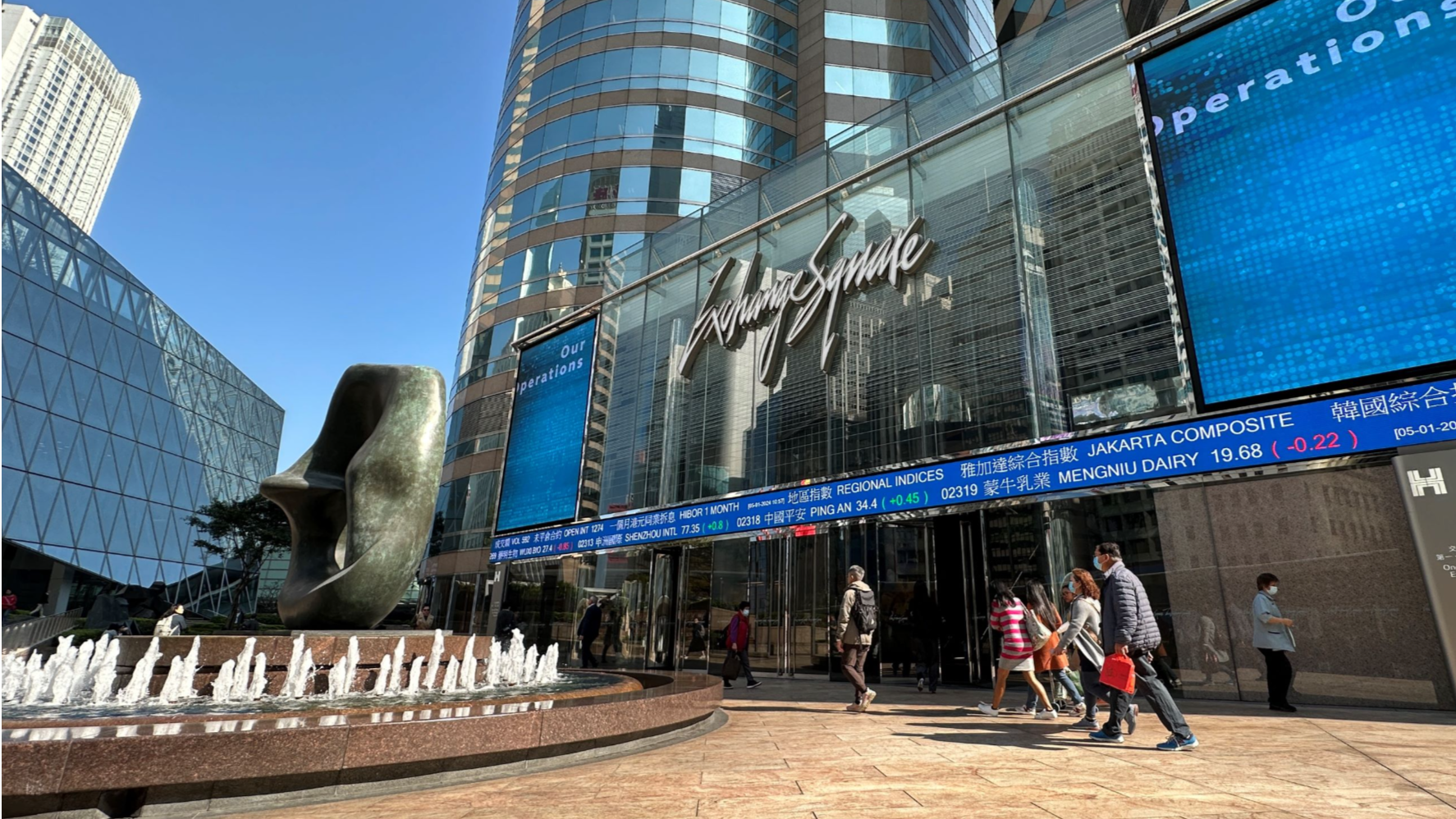
Prices of dual-listed companies on the Chinese mainland and in Hong Kong have historically shown a gap, with A-shares trading higher, but this gap has recently narrowed to its lowest level in five years
In the past, when the premium of A-shares over H-shares contracted to similarly low levels, Hong Kong equities often pulled back, but some strategists argue that the impact on H-shares’ performance this time is limited.
They expect the gap to further narrow with H-shares continuing to rise amid improving liquidity in the Hong Kong stock market and a recovery in investor sentiment.
READ MORE: Finance chief bullish on Hong Kong's stock market
The Hang Seng Stock Connect China AH Premium Index, which tracks the price differences between dual-listed companies on the mainland and in Hong Kong, recently dipped below 128 points to a five-year low. The index closed at 128.34 on Tuesday and has lost more than 10 percent year-to-date.
The index, which uses 100 as its baseline, indicates that A-shares are more expensive than H-shares when it is above 100, and vice versa when it is below 100.
Conita Hung, a member of the executive committee at the Hong Kong Institute of Financial Analysts and Professional Commentators, said a further narrowing could lead to capital outflows from Hong Kong back to the mainland markets.
As the A-H premium decreases, Hong Kong’s advantage of low valuations over A-shares could weaken, which would potentially push investors to seek cheaper opportunities on the mainland.
But Hung noted she believes such shifts will not impact the Hong Kong market in the near term, as the premium remains relatively wide and the current narrowing is within a reasonable range.
A-shares have historically traded at a premium to H-shares, with the index largely staying in a 130-160 range over the past five years.
However, there have been more cases where H-shares command a premium over A-shares. The share price of Contemporary Amperex Technology Co (CATL) closed at HK$310 ($39.5) in Hong Kong on Tuesday, compared to 246.26 yuan ($34.3) in Shenzhen — a roughly 15 percent premium for the H-shares. Similar cases can be seen with WuXi AppTec and China Merchants Bank, where H-shares trade at premiums of about 5 percent and 8 percent, respectively.
Analysts said they expect the price gap between A-shares and H-shares to continue shrinking. Alvin Ngan, an equity strategist at Zhongtai Financial International, said the narrowing premium reflects improved liquidity and expectations of better earnings for Hong Kong stocks.
The recovery in market sentiment has been partly driven by artificial intelligence (AI) technology breakthroughs on the Chinese mainland. Meanwhile, stronger net fund inflows from mainland and foreign investors, coupled with reduced investment costs, have improved liquidity, he added.
Ngan said that recent high-profile listings, such as CATL and Jiangsu Hengrui Medicine Co, have also added momentum to the Hong Kong market.
READ MORE: Dual listings on HK stock exchange flavor of season
Hung said the higher valuations of A-shares relative to H-shares, despite the former’s weaker performance, have also contributed to the premium narrowing.
The Hang Seng Index, the major benchmark of Hong Kong stocks, has increased more than 20 percent this year, outpacing the 4 percent gain in the Shanghai Composite Index and the less than 1 percent rise in the Shenzhen Component Index.
From a longer perspective, a tighter premium has often coincided with declines in Hong Kong stocks. In mid-March, for instance, the premium index fell to around 128 points, and the HSI dropped from a high of more than 24,700 to below 20,000 by April. Similarly, the index narrowed to around 128 points in October, and then the HSI declined by more than 17 percent from its peak of 23,000, before stabilizing earlier this year.
Contact the writer at irisli@chinadailyhk.com


